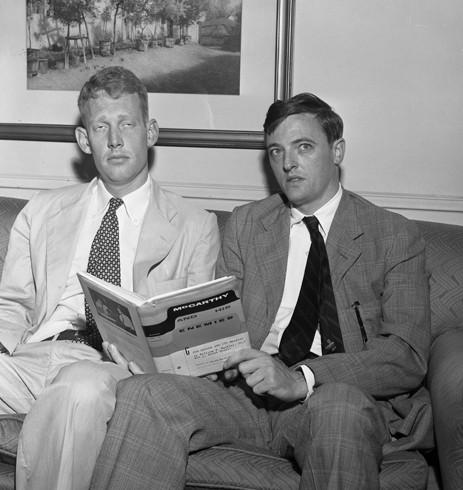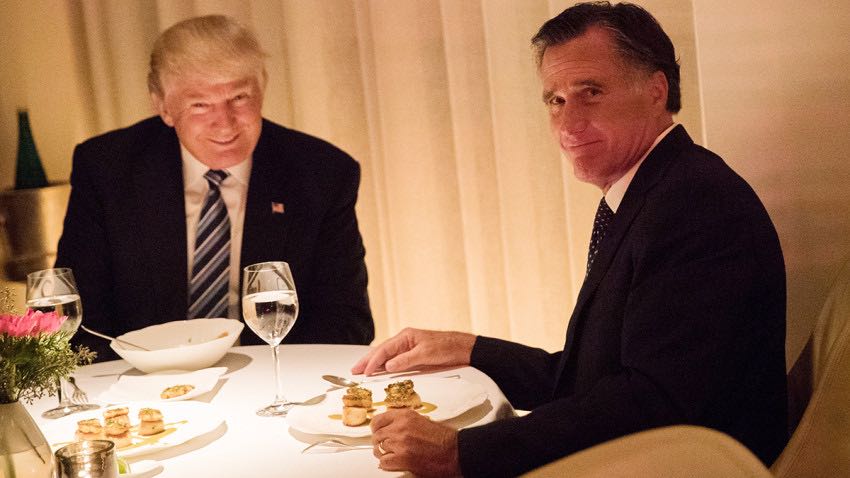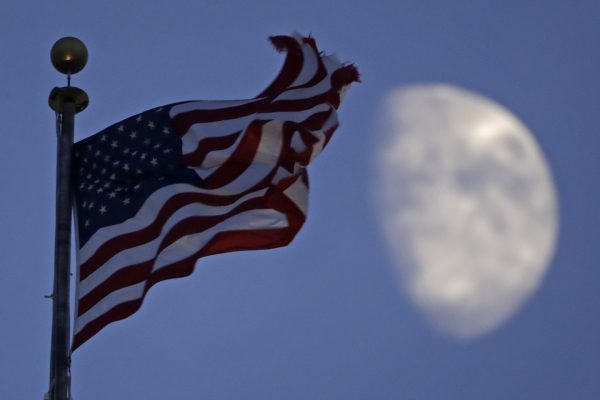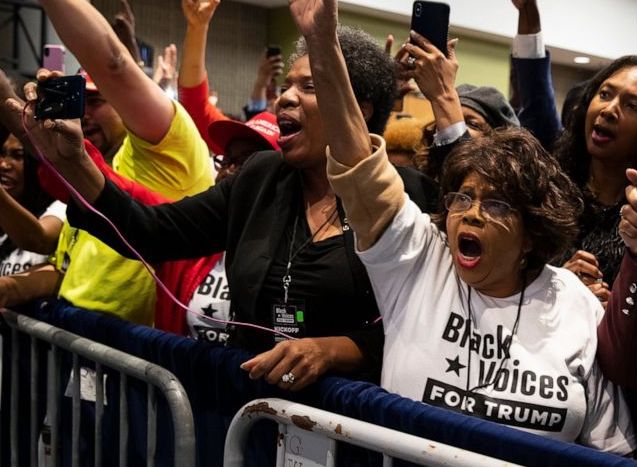How I Learned to Stop Worrying and Love the Liberalism Debates

It’s Public Political Philosophy, Not Public Policy.
In the recent pages of this and several other opinion journals, conservatives both young and young-at-heart have been reviving old debates about political philosophy and the nature of the American regime.
I have argued elsewhere that the “liberalism” discussed in these debates tends to diverge widely from the actual liberalism of American history and practice, and that those interested in tackling the concrete challenges of contemporary public policy would do well not to get bogged down in these theoretical debates.
But to pooh-pooh these debates as irrelevant academic theorizing would be both counterproductive and unfair. Every single young conservative I have talked to in the past year was dissatisfied with, for example, the ways that David French and Sohrab Ahmari have recently defended their respective positions. Every single young conservative I have talked to also saw that these two men had touched on a serious issue that should matter to anyone who cares about politics.
The “Impractical” Critique
Upon hearing the arguments of those on the Right who voice criticisms of our liberal order and of its purported philosophic foundations, conservatives skeptical of these criticisms almost invariably complain that the practical payoff appears hardly worth the fuss.
Is the point that we would like to have lived in the 13th century? Fine, but our own century still needs some help.
Is the point that we ought to make our own century look more like the 13th? The Society for Creative Anachronism has never turned down an applicant.
Is the point that we should expand the child tax credit and make permanent the immediate write-off for capital investments? Reformicons have made such arguments for over a decade without needing any high philosophical rhetoric.
Or could the point be that we should follow the Vatican’s lead in making our peace with a globally ascendant Chinese Communist Party, airbrushing the latter’s tyranny with a healthy dose of anti-American whataboutism? It would be refreshing to hear this argument made openly.
Anyone may be excused for becoming frustrated with authors who appear to write so impractically about politics, which is after all a practical science. Yet this basic and widespread counter-criticism of liberalism’s critics misses the most important aspect of our liberalism debates.
Political Philosophy as a Vehicle for Self-Knowledge
Those of us who find it intrinsically enjoyable to think and argue about the political issues of our day ought to recall that this is not a simply natural human taste.
We are attracted to problems of public policy, in large part, because we are somehow aware that each particular issue must sooner or later implicate bigger human questions. We sense (correctly) that every policy decision has to fit into the general framework within which we understand human affairs, both private and public. We sense that our ability to craft good public policy depends in some way on our knowledge of the human situation simply.
When we want to solve the concrete policy problem in front of us, we are not just hoping to benefit our country; after all, unless we are high-ranking cabinet officials, the odds are that no decision-maker will ever listen to us anyway. We want to solve this problem because we will thereby incrementally advance, and also confirm, our own understanding of what it means to live as a human being among other human beings.
Once a serious question has been raised about the larger human framework within which we understand our own patriotism, it would be ridiculous to ignore that question merely because it offers no concrete policy takeaway. Perhaps a true Marxist today would choose to pursue the precise policy agenda favored by Heritage Action For America, with the thought that this will heighten the contradictions of the capitalist system and prepare for a proletarian revolution in 100 years. A young Heritage staffer who encountered such a Marxist—even if neither of them expected to live to the day when their respective views would diverge in practice—would still rightly ask himself whether he ought to be thinking and living today as a Marxist. He could not silence that curiosity without losing something essential to his humanity.
Moreover, a question can be relevant to our practical lives without being immediately relevant to our public policy. David French appears to believe that the Golden Rule requires a Christian mother to let her neighbors’ children attend a (real) library-sponsored Drag Queen Story Hour, just as she wishes those neighbors to let her own children attend a (completely hypothetical) library-sponsored Bible Story Hour. St. Augustine might have rejoined that the Golden Rule requires a Christian mother to do everything reasonably in her power to prevent her neighbors’ children from being subjected to Drag Queen Story Hour, just as she wishes to prevent her own children from suffering the same fate.
Let us suppose that under recently developed First Amendment jurisprudence on “viewpoint neutrality,” the Christian mother who wishes to act on St. Augustine’s view has absolutely no way of doing so today (although I find this supposition very unlikely). Let us further suppose that if St. Augustine himself were familiar with our First Amendment jurisprudence, he would have granted that any realistic change in it today would end up causing more harm than good to the moral ecosystem in which our children are raised. The Augustinian mother’s understanding may then have no direct relevance to any public policy question. Nevertheless, the debate over “liberalism” would have confronted us with the need to choose between (at least) two very different understandings of the Golden Rule.
How could this moral question fail to have practical consequences? Whether we regard the Golden Rule as a part of God’s law, or simply as an essential element of any morally upright human life, our understanding of it has to affect all of our most important practical concerns.
And these are the same concerns that the young people most attracted to our liberalism debates are still sorting out for themselves: whom to be friends with, whom to marry, where to live, what kind of career to pursue, how to raise one’s children, how (or whether) to serve God. Practical decisions like this depend on answers to any number of fundamental moral questions—questions that tend to rise quickly to the surface whenever people start dredging up old debates in political philosophy.
One learns to sympathize better with the journalistic versions of these debates, for all their inadequacies, once one views them as an introduction to questions which aim at deeper moral self-knowledge.
Do the young people engaged in these debates sometimes flirt with outlandish policy ideas? They are thinking hard thoughts about hard questions that matter to human beings. It is fundamentally a good sign that they resemble Socrates’ brash young interlocutors in Plato’s outlandish Republic rather than his prudent old interlocutors in the more sensible Laws.
For example, no American in our lifetimes will have to decide whether to burn a heretic. But if you come to realize that you are an American who under different political circumstances would burn a heretic, you will surely end up making at least a few life decisions differently than you would otherwise have. As Cicero said, the question what you would do with the Ring of Gyges remains a practically relevant question even though there is in fact no Ring of Gyges.
Knowing Whom to Trust
Nor is it even true that these moral-philosophical questions are irrelevant to actual public policy.
The straits within which policymakers sail are, of course, almost infinitely narrow compared to the open sea of philosophy. The vast majority of decisions made by even a U.S. President, and a fortiori by any other official, are determined by a host of unavoidable and competing interests that bear no direct relation to any coherent theory of politics. (Not that any American politician has ever laid out a coherent theory of politics.)
George W. Bush and Barack Obama would have looked much more different in the graduate seminar room than they did in the Oval Office. They nonetheless did look somewhat different in the Oval Office. And at least a few of those differences really did result from their differing “philosophical” understandings of government and of human nature.
This is unavoidable because of a little secret about politics that we political scientists are sometimes reluctant to reveal: Nobody actually knows what they are doing.
Within Washington are a number of breathtakingly intelligent and well-informed individuals devoted to making their country a better place. Even those individuals have major policy disagreements. Good foreign policy depends on an understanding of good domestic policy and vice versa. Yet nobody has time to be an expert in both the foreign and the domestic policy of a modern industrial nation. Barely a handful of people in the entire U.S. have time to be real experts in (e.g.) healthcare policy. None of them can at the same time follow all the ebbs and flows within Congress that will determine which of their brilliant healthcare plans ever stands a chance of becoming law, much less all the decisions in other policy areas that will intersect with their healthcare plan and could easily end up ruining it.
Every single participant in the political process is thus forced to make thousands of insufficiently informed, gut decisions, based largely on trust in other individuals. This of course is no reason for any student to drop the political science major, as there is no excuse for failing to inform ourselves on every policy detail we can manage to learn about: we ought at least to be making gut decisions from among as narrow a range of reasonable options as possible. But those gut decisions can never be avoided. No amount of technocratic wonkery can save us from the dilemma of trusting some people over others.
At some point, concrete policies will always depend on policymakers’ impressions of other people’s character and good judgment. How does this person see the world? What are his virtues and vices, both intellectual and moral? How would she have resolved past policy debates whose outcome we now know? How will he resolve future policy questions that we can never ask him in advance?
There are many ways to acquire this sense of whom to trust on political questions, and one way is surely through hearing various people’s conversations on general philosophical topics: the purpose of government, the limits of free markets, or even the proper treatment of heretics.
Political Philosophy in the Public Domain
I have protested, and protested, and protested, against efforts by my fellow political theorists to make our subfield appear more directly relevant to political practice than it ever can be.
Every politically viable stance on any concrete policy will be defensible from multiple and contradictory philosophical points of view. Every successful public policy will be supported by people who—certainly as a group, and for the most part even as individuals—likewise hold multiple and contradictory philosophical points of view.
I have spent some time as a professional political theorist and a bit of time as a policy practitioner, and I feel confident in saying that these are very different vocations yielding very different intellectual satisfactions. Confusing them can and does lead to terrible consequences, both for theory and for practice.
But we cannot wish that the young, or for that matter the young-at-heart, would become less concerned with questions of political theory. Nor is this just professional self-interest speaking. I do happen to think that anyone concerned to think through these questions should give serious thought to academic graduate school, as it is tremendously difficult in any other context today to find the leisure to treat these questions with the seriousness they deserve.
When those who have spent time in or near a graduate political theory program see a 2000-word opinion piece trying to nail down the nature and purpose of government, we feel roughly the way that a policy wonk feels when listening to the call-in section of a talk radio show. There is absolutely no substitute for serious study of the greatest authors in the Western tradition. They analyzed political life with a degree of clarity that none of us could approach without their help.
Still, the lives of these very authors remind us that political theory is not the private domain of professional political theorists. Our tradition’s most profound reflections on the nature of politics have come from medical doctors, pastors, research scientists, politicians, civil servants, children’s tutors, philosophy professors, a lens-grinder, a music copyist, an army general, a baron.
Most of these men had indeed benefited from a period of intense and leisured study when young. But all continued to find time for serious thought over the course of their busy adult lives, and all managed (sooner or later) to put some of those thoughts to paper.
Those who are attracted to the political issues of our day, and especially the young, can spare a few minutes from their busy schedules to revive and carry forward this tradition of political reflection, with all its raucous debates. To the extent that they are self-conscious about their own intellectual interests, they can hardly help doing so. We should not wish them to stop.
We should only remind them to drop us a line if they want some better reading suggestions.
The American Mind presents a range of perspectives. Views are writers’ own and do not necessarily represent those of The Claremont Institute.
The American Mind is a publication of the Claremont Institute, a non-profit 501(c)(3) organization, dedicated to restoring the principles of the American Founding to their rightful, preeminent authority in our national life. Interested in supporting our work? Gifts to the Claremont Institute are tax-deductible.
The minor prophets of conservatism may be past their sell-by date.
His craven impeachment vote reminds us morality isn’t a matter of "feeling." It’s a matter of truth.
Time travel of every kind is madness.
Recovering the world-changing triumph of America.
Why African Americans should be very, very mad at the Democratic Party






